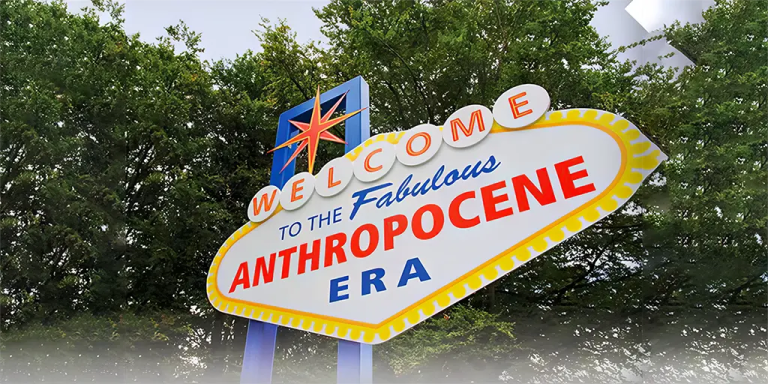David Middleton guest stars in 'Zombie Killings'
Geology says the Anthropocene is horst schist…
March 20, 2024
Anthropocene
In 2001, atmospheric chemist Paul Crutzen proposed that human activities were affecting natural environmental conditions to the point that we had actually left the stable conditions of nature during the Holocene and entered a new period, which he termed Named “The Anthropocene”. In response to this recommendation, the Anthropocene Working Group (AWG) was established in 2009 at the initiative of Phil Gibbard (PLG: then Chairman of the Subcommittee on Quaternary Stratigraphy; SQS). The task force is tasked with reviewing the evidence for human-induced climate change reflected in recent geological records and determining whether this is sufficient to incorporate new stratigraphic units into the Geological Time Scale (GTS), and, if so, at what level. The working group, initially led by Jan Zalasiewicz (JAZ) and later Colin Waters (CW), finally submitted its report to SQS in late October 2023 after 15 years of deliberations.
[…]
In accordance with standard ICS procedures, it is expected that there will be 30 days for discussion of the AWG proposal, followed by 30 days for voting. Due to a possible conflict of interest, JAZ and MAH recused themselves from the management of the voting process (although both participated in the discussion), the discussion and voting were chaired by First Vice-President Professor Zhou Liping (Peking University: LPZ)) and Professor Adele Bertini (University of Florence: AB) and ensure that processes strictly adhere to ICS rules. However, when the discussion period ended and the secretary proposed a vote, both JAZ and MAH objected, saying that the discussion period was not long enough and that additional information on the Anthropocene proposal had been excluded. This was not supported by the large number of SQS members who were eager to vote. However, in order to meet requests for more time, LPZ and AB agreed to extend the discussion period, initially expected to end in late December, to the end of January. Despite further objections from JAZ and MAH, arguing that there was insufficient time for discussion, voting finally began on February 4. The competition ends on March 4 and the results will be announced immediately.
The result was that the Anthropocene proposal was decisively rejected: 4 votes in favor; 12 votes against; and 3 abstentions. Three members, including JAZ and MAH, did not vote and they subsequently began a campaign to challenge the legality of the vote on procedural grounds and alleged breaches of ICS regulations. It is important to stress that there are no questions of wrongdoing on the part of LPZ or AB, who acted with complete integrity throughout this difficult process and performed their duties in full compliance with the statutory requirements of the ICS. The integrity of SQS membership cannot be questioned either. All those involved in this process are among the best geoscientists from several countries and have extensive expertise in:
Quaternary stratigraphy and chronology. It was clear from comments made during the discussion that many were unconvinced by the arguments in the ad hoc working group proposal, and their doubts were clearly reflected in the conclusiveness of the vote outcome.SQS's vote has been recognized as valid by the ICS Executive Committee, and this recognition was supported by the near-unanimous support of the 17 IUGS subcommittee chairs who are ICS voting members (15 in favor, 1 abstaining, 1 conflict of interest). Although their proposal was decisively rejected, the AWG performed an important service to the scientific community by collecting extensive data on human impacts on global systems, and the database will serve as an important reference source in the future. Furthermore, the Anthropocene as a concept will continue to be widely used by earth and environmental scientists, social scientists, politicians and economists, and the public at large. As such, it will remain an invaluable descriptor of human-environment interactions. But it will not be considered a formal geological term, but it will be more useful to use it informally in future discussions about anthropogenic impacts on Earth's climate and environmental systems.
[…]
international union of geological sciences
The PNAS paper cited in the “I Love Science” article has this chart:

Well… The Anthropocene: 1940-1980 RIP.
Next?
refer to
Kuwae M, Yokoyama Y, Tims S, Froehlich M, Fifield LK, Aze T, Tsugeki N, Doi H, Saito Y. Proceedings of the National Academy of Sciences A. 2024 Oct 8;121(41):e2313098121. DOI: 10.1073/pnas.2313098121. Electronic version September 23, 2024.
Relevant
